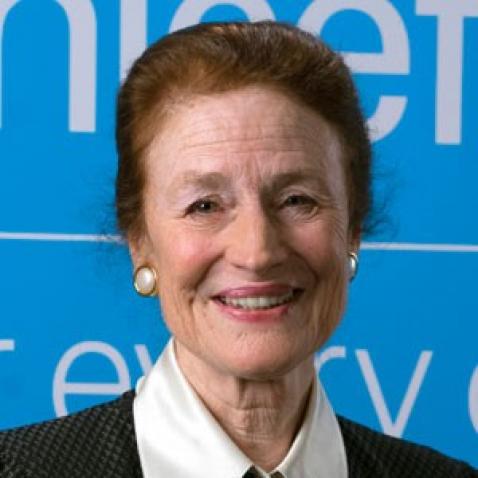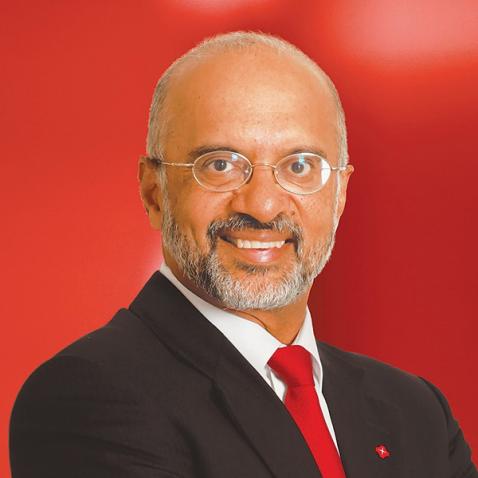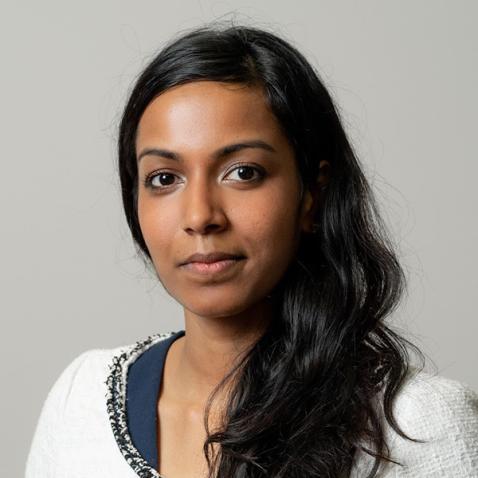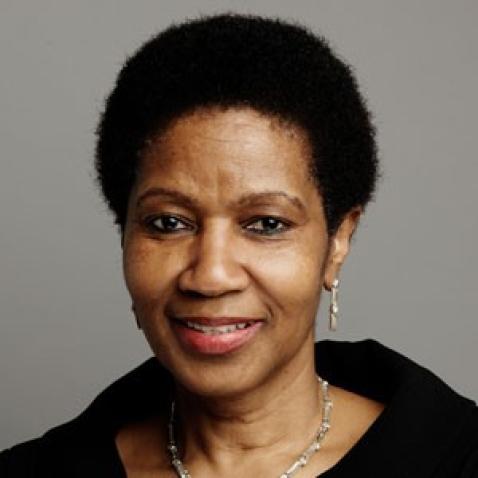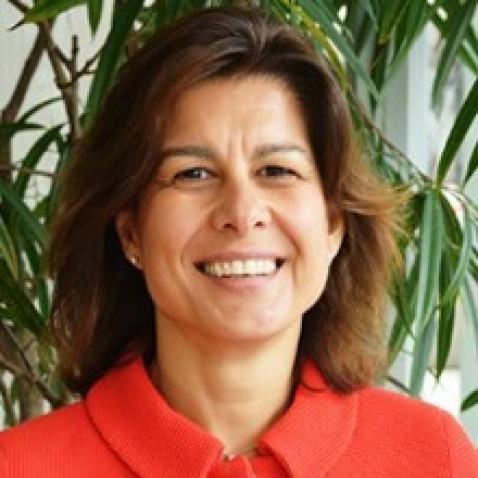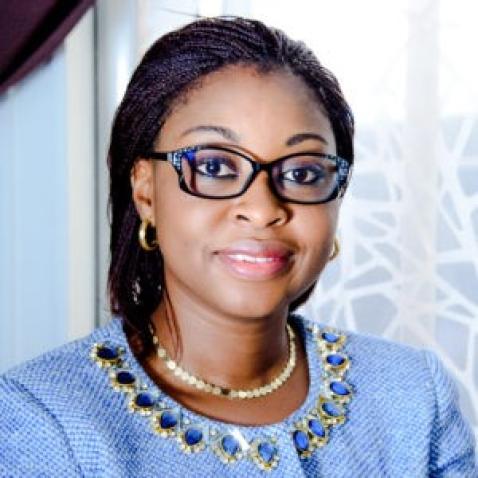On 26 August 2020, United Nations Secretary-General António Guterres, together with Co-Chairs Achim Steiner and Maria Ramos, launched the report of the Task Force, People’s Money: Harnessing Digitalization to Finance a Sustainable Future.
The Task Force was established by the Secretary General as part of his broader Roadmap for Financing the 2030 Agenda for Sustainable Development: 2019-2021. Its mandate: to catalyse and recommend ways to harness digital financing to accelerate the financing of the Sustainable Development Goals. It brought together 17 leaders from finance, technology, policy, regulation and international development, who through their work together, engaged in dozens of countries and with hundreds of experts and institutions over an 18 month period.
The Task Force’s findings point to digital disruption as an historic opportunity to reshape finance. Digitalization can have a transformative impact by empowering people as savers, lenders, borrowers, investors, and taxpayers. The Task Force has focused on how digitalization can support the development of a citizen-centric financial system that supports peoples’ priorities, collectively represented by the SDGs.
The report illustrates, through case examples and data, how digitalization has the potential to reshape the flows of large amounts of finance towards SDG impacts and alignment through more and better data, cheaper intermediation and innovative new business models.
Call to Action
The Task Force’s Call to Action to harness digitalization in creating a citizen-centric financial system aligned to the SDGs is underpinned by an Action Agenda with a three-part set of recommendations.
 Advance catalytic opportunities to deliver financing for sustainable development. These would not only mobilize significant finance, but be catalytic in triggering broader, systemic changes:
Advance catalytic opportunities to deliver financing for sustainable development. These would not only mobilize significant finance, but be catalytic in triggering broader, systemic changes:
- Accelerating the use of domestic savings
- Enhancing accountability of public financing
- Making SDGs count in global financial markets
- Financing small and medium enterprises
- Promoting SDG-aligned consumer spending.
- Build foundations for sustainable digital ecosystems, including inclusive infrastructure, digital ID and data markets, institutions to steer the evolution of SDG-aligned digital financing, and development of the people’s capacity and rights.
- Strengthen inclusive international governance. Regulations and standards governing digital financing need to be informed by SDG commitments and goals, with a particular need to ensure that the SDGs inform the governance of a new generation of global digital financing platforms with significant cross-border, spillover impacts.
Implementing the Action Agenda requires distinct actions by seven groups across public and private sectors, at local, national, regional and global level. It requires both ambitious individual action and ‘joining the dots’ between different groups of actors.
|
Actors |
Key roles |
|---|---|
|
Policy makers and regulators |
Provide standards and regulatory certainty, advance cooperation with innovators, steer market development in support of national sustainable development priorities, empower citizens and mitigate risks brought by digitalization of finance. |
|
Member states, supported by UN |
Cooperate to share experience, coordinate and advance ambition and develop common principles and approaches, while building capacity, infrastructure, regulations and industry support at home. |
|
Fintech companies and global digital platforms |
Innovate products and services which meet consumer demand to channel finance to sustainable development goals. Commit to principles of SDG-aligned digital financing and develop corporate governance mechanisms to ensure they operationalize them. |
|
Financial Institutions |
Identify and advance opportunities in own products and systems, advance interoperable digital ID and data systems. Engage with international standard setting and explore corporate governance options for stewarding the SDGs. |
|
International development community |
Technical assistance and disseminating learning, supporting governance innovation. Provide support for development of inclusive infrastructure and the capacity of citizens |
|
Development finance institutions |
Offer solutions to share risk to enable the development of catalytic solutions. Share knowledge to help governments design risk capital projects aligned to sustainable development and provide incentives via conditionality for corporate governance innovations. |
|
Civil society organisations |
Across civic, religious, youth, women’s, worker, trader consumer and other interest groups: mobilize collective voice, documenting problems and solutions to hold the powerful accountable. Build the capacity of citizens. |
The Call to Action and Action Agenda are ambitious and achievable and are relevant to all countries. Specific aspects and focus areas, however, depend on national priorities, the maturity of digital infrastructure, public financing and financial markets, capabilities and financial governance arrangements.
The Role of the UN
The UN supports Member States in implementing the 2030 Agenda for Sustainable Development. As part of this, there are three ways in which the UN can advance the Task Force’s Action Agenda.
- By advancing sustainability-aligned digital financing solutions at the country and regional levels.
- By building out inclusive international governance, focused in particular on advancing appropriate governance principles and more inclusive policy and regulatory development.
- By exemplifying good practice in transparency and accountability of its own finances including those it channels to activities in Member States.
Finally, the Task Force recommends that the UN should develop a mechanism for stewarding the implementation of the Task Force’s recommendations.
The Task Force
Co-chairs
- Achim Steiner, Administrator, UNDP
- Maria Ramos, Previously Chief Executive, ABSA Group Ltd
Task Force Members
- Maiava Atalina Emma Ainuu-Enari, Governor and Chair, Central Bank of Samoa
- Henrietta H. Fore, Executive Director, UNICEF
- Mats Granryd, Director General, GSMA
- Piyush Gupta, Chief Executive Officer and Director, DBS Group
- Natalie Jabangwe, CEO, EcoCash
- Eric Xiandong Jing, Chairman, Ant Group
- Bradley Katsuyama, CEO and Founder, IEX
- Pooma Kimis, Director, Autonomous Research
- Phumzile Mlambo-Ngcuka, Executive Director, UN Women
- Ambareen Musa, Founder and Chief Executive Officer, Souqalmal
- Patrick Njoroge, Governor, Central Bank of Kenya
- Ceyla Pazarbasioglu, Vice President for Equitable Growth, Finance and Institutions, World Bank Group
- Richard Samans, Managing Director, World Economic Forum
- Zhenmin Liu, Under-Secretary General for Economic and Social Affairs, UN DESA
- Aurelie Adam Soule Zoumarou, Minister of Digital Economy and Communications, Government of Benin
All members of the Task Force served in their personal capacity, not as representatives of their affiliated institutions. The deliberations of the Task Force has been supported by a small secretariat, led by Sherpa to the co-Chairs, Simon Zadek.
The Task Force builds on the findings and recommendations of the UN Secretary General’s High-Level Panel on Digital Cooperation. It has drawn on research and extensive engagement with the financial community, policy-makers and regulators and experts and civil society groups, including through a Call for Contributions and formally constituted convenings in Amsterdam, Beijing, Berlin, Brussels, Davos, Geneva, Kuala Lumpur, London, Milan, Mumbai, Nairobi, New Delhi, New York, Paris, San Francisco, Singapore, and Toronto. The Rockefeller Center in Bellagio, Ant Financial, World Bank, and World Economic Forum also hosted meetings and retreats that fed into the report.
Support for the Task Force has been provided through funding the Governments of Germany and Italy, with key contributions from knowledge partners and the hosts and participants of hundreds of engagements made over the life of the Task Force.




